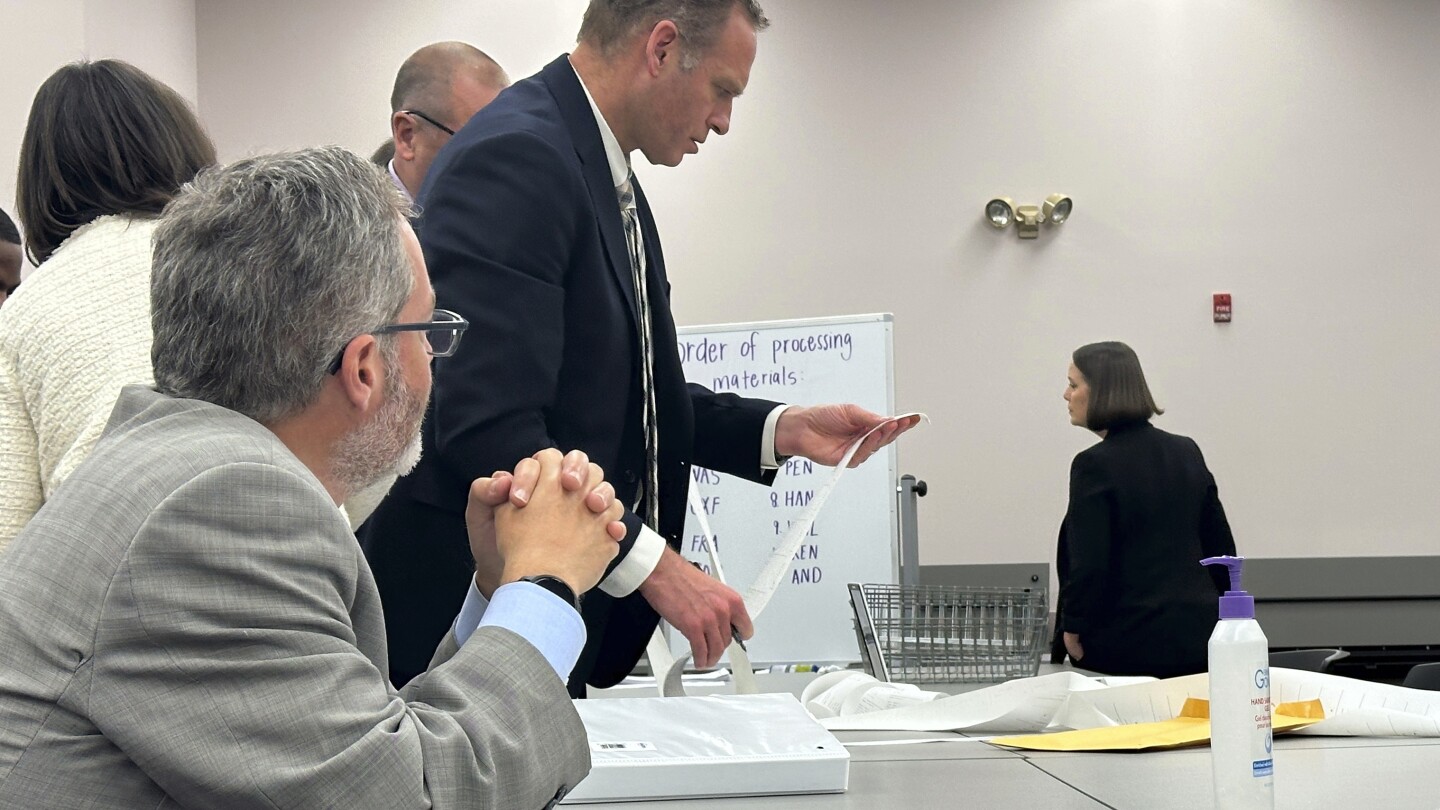Summary
Voters across eight states, including Arizona, Colorado, and Nevada, rejected ballot measures for election reforms such as ranked choice voting (RCV) and open primaries, despite a $110 million push from advocates.
The movement, inspired by Alaska’s 2020 adoption of these reforms, failed to gain traction, with critics citing confusion and doubts over RCV’s benefits.
Some reforms succeeded locally, including in Portland, Oregon, but opposition remains strong.
I used to think RCV would make democracy much better. I now know that is not necessarily true.
I still think proportional representation does make democracy better. In a proportionally representative system, political parties are assigned seats in the legislature according to the percentage of votes they receive. So, if a party receives 30% of the votes, they get 30% of the seats. It’s true that this means that often no one party has a majority, requiring multiple parties to come together and form a majority coalition (and this can be a challenge - Germany has a few examples of this not working out, one recent and one very famous), but it works well enough in most democracies.
So what would be the threshold for Senator representation split? Obviously if a state is 50/50 it would be one of each. But when would they both go to one party? 67/33?
Also, how do they determine who is at the top of the ballot for each party? The primary?
As a resident in a red state that regularly votes more than 1/3 Democratic but has 100% Republican representation in congress, I would love to have some representation.
The Senate couldn’t exist, because it is inherently disproportionate. The Senate would have to be abolished and the house of representatives would have to be expanded and restructured.
The US is unique. We are the only democracy that is also a federation of semi-autonomous states, each with its own constitution and somewhat independent legislature. I believe in other democracies that don’t have semi-autonomous, semi-independent states, what they do is hold a national, parliamentary election in which people vote for parties, not necessarily individual candidates. Seats in parliament are then assigned to each party based on the percentage of the popular vote they receive. So, if a parliament has 100 total seats, and 25% of the people vote for a specific party, that party gets 25 seats.
The US federal house of representatives already assigns seats proportionally to each state based on population. I don’t know how it would need to be restructured so that there would also be proportional representation based on political affiliation. I would have to think about that.
Edit: I guess one way it could work is the federal house would give each state a certain number of seats based on the state’s population, and then each state’s block of seats would be divided among the parties based on the percentage of votes they get in that state. And then representatives could join up with representatives from other states that belong to their same party. I don’t know, I suppose that’s one option.
The US is weird. Most other democracies have a single, national government instead of separate state and federal governments. Also, most other democracies have MUCH smaller populations than the US.
I think we should start pushing approval voting instead of ranked choice. Ranked choice is easy to explain how to vote but a little complex to explain how the vote is tallied and that’s what people find confusing.
Approval voting is straight forward and easy to explain, whoever gets the most approvals wins.
They both are much better than what we have.
“RCV is too confusing” say anti-RCV politicians deliberately wording RCV ballot measures to be as confusing as possible.
In Colorado, it was severely flawed, being a jungle election, then a RCV.
There’s still a lot of education that needs to be done on these topics, it’s all still pretty niche among the broader public.
Totally agree. In 2000, during the hanging chad debacle, I had a philosophy professor completely shift our class to the philosophy of voting. I found it endlessly fascinating and opened my thinking around voting. Here’s some good info on the topic: https://plato.stanford.edu/entries/voting-methods/.
We should be pushing approval voting instead, the educational barrier is way lower and both RC and approval are a load better than FPTP.
both… are a load better than FPTP.
That’s exactly why we shouldn’t quibble over them too much.
In other words, now is a good time to make the argument you’re making. However, I also saw people making that sort of argument just before the election, after the decisions about what to put on the ballots had already been made, and in that context the argument come across as anti-RCV concern trolling.
BuT vOtInG tHiRd PaRtY iS a WaStE oF a VoTe!!! /s
Don’t those people not realise that this reform could have helped move the voting system into the direction that no vote is ever wasted?
I don’t think those are the same people saying that. People who know how the math works for third parties also know why it happens and what the solution is.
One thing that should be abundantly clear from this election is that a lot of people are badly misinformed. They have little conception that third parties even exist or if they do, they don’t care.
I think a big, often-overlooked part of the problem with third-parties is that people disregard them not only because they “can’t win” but also because they’re invariably full of deeply-unserious lunatics that nobody wants to vote for anyway.
Think about it: because of first-past-the-post, pretty much every would-be politician who (a) actually grasps how the system works and (b) actually cares about getting into office is going to join either the Democrats or the Republicans. So who’s left to join third parties? The answer is, morons that nobody wants in charge of anything, and idealogues too fanatical to moderate their platform to win support and too stubborn to care that it makes them unelectable.
In other words, there’s a bit of a chicken-and-egg problem going on here: people need to want to vote for third-parties in order to care about RCV, and third-parties need RCV to be able to attract politicians that would give them credibility.
Yeah, I’d say that’s right. I’ve looked at the Greens, and Jill Stein in particular, and evaluated their history on their own merits. They’re clowns. Shooting climate policy in the foot by historical opposition to nuclear, and having an internal fight to take homeopathy out of their healthcare policies. If we had ranked choice in my state, I’d still rate Jill Stein higher than a random Republican, but I’d be looking for so many other progressive candidates above her.
Now, I’ve also been looking at the Working Families Party, which isn’t dumb enough to run a spoiler candidate, and they’re quite clear on that. They work with Democrats hoping to get things like fusion voting and ranked choice passed. Meanwhile, run candidates where it makes sense and look for other strategic opportunities.
They really don’t. They’ve been told it will cause problems by the only talking heads they listen to, so they believe it.
Well sure but these are the same mouth-breathing cloven-hooved dipshits that elected trump.
“RCV is too confusing” say people who have no problem filling out sports brackets 🙄
Missouri got their anti-RCV proposal passed by billing it as an amendment declaring that non-citizens cannot vote. That’s right, they did it by banning something that was already against the law.
Maybe the way forward for election reform is to put it as a footnote in a proposition declaring murder to be bad.
Yeah there seemed to be a lot of misinformation coming from both parties against these ballot measures. Neither side of the isle wants to allow these to pass as it undermines their power. Uninformed voters that simply follow party lines were being directed to vote against this on both sides. Go figure…
Voters said they want change so they get better representation by keeping things exactly the same










